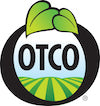Perdue Chicken Manure Gets New Life as Alternative Energy

Perdue, the Maryland-based poultry giant, may soon be producing something else from chickens: energy from chicken manure.
The company has partnered with AgEnergyUSA on a $200 million project involving an energy plant that will transform manure into energy, keeping the animal waste from polluting the Chesapeake Bay.
"We think we have a very manageable solution, with our partner Perdue," James Pott, AgEnergyUSA's president told the Baltimore Sun.
According to the Sun, the push for the new manure-to-energy project came “as the Hogan administration and leading Democrats settled their differences over regulations to curb farmers' use of polluting poultry waste to fertilize their crops. Environmentalists had long pushed for strict limits to keep the manure from washing off fields into the bay. But farmers resisted, arguing that the costs of disposing of the manure and buying other fertilizer would drive them out of business.”
"The timing is perfect," said Potter of his proposal to turn the manure into energy. "This allows the Eastern Shore to put together a plan for meeting [manure-limiting regulations] without disrupting the economy."
The project could turn as much as 200,000 tons of chicken manure into energy. It’s roughly the same amount that makes its way onto the Bay’s shore each year, and environmentalists favor the move over burning, which contributes to the region’s air pollution issue.
According to the Sun, the plant would use bacteria to extract methane-rich bio-gas from the manure for industrial use, “The residue would be processed so that the bay-fouling nutrients in chicken waste could be separated and used in a more environmentally friendly manner. The nitrogen could be sold back to farmers as liquid fertilizer, which crops need every year, while the problematic phosphorus that's built up in Shore soils could be shipped elsewhere and sold as peat moss.”
"Environmentally, this project will provide an alternative to land application for a significant amount of poultry litter, eliminating the risk of any portion of the nitrogen or phosphorous in this litter from finding its way into the Chesapeake Bay watershed," Steve Schwalb, Perdue's vice president for environmental sustainability told the Sun.
And the move is earning big praises from regional environmental organizations, including the Chesapeake Bay Foundation. Doug Myers, the group’s senior scientist said, "It's the most promising thing we've seen."
Image: kennethkonnica
Leave a comment
Comments will be approved before showing up.


